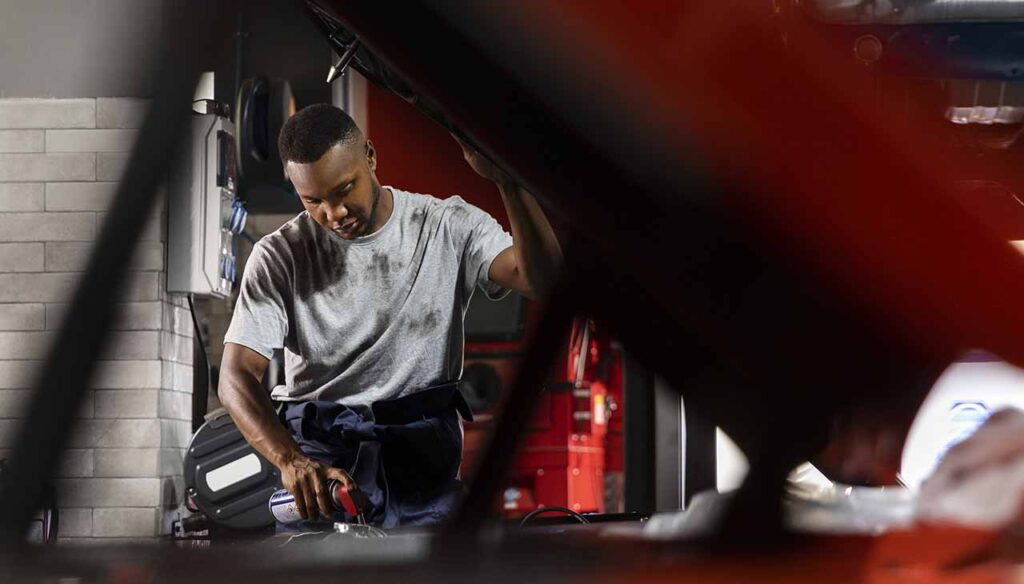Keep Your Vehicle Running Smoothly with These Essential Auto Repair Services

Owning a car is a significant responsibility. Regular maintenance is key to ensure your vehicle runs smoothly and safely. Whether you’re a seasoned DIY enthusiast or someone who prefers leaving car care to the professionals, understanding common auto repair services is essential. In this comprehensive guide, we’ll explore the most important auto repair services, how to identify when your car needs attention, and tips for maintaining your vehicle in top condition.
Introduction to Auto Repair Services
Maintaining your vehicle isn’t just about avoiding breakdowns. Regular auto repair services prolong your car’s life, improve its performance, and ensure your safety on the road. Understanding when and why these services are needed is a crucial part of responsible car ownership. This guide will help you recognize common auto repair services and when your car might require them.
Understanding Common Auto Repair Services
Oil Change
Oil changes are fundamental to vehicle maintenance. The oil lubricates the engine’s moving parts, reduces friction, and helps prevent overheating. Over time, oil breaks down and becomes contaminated, which can lead to engine damage.
Regular oil changes are crucial for maintaining engine health. Most manufacturers recommend changing the oil every 3,000 to 5,000 miles, but this can vary based on your vehicle and driving habits. Clean oil ensures your engine runs smoothly and efficiently, reducing the risk of costly repairs down the line.
Brake System Inspection
Your car’s brakes are its most critical safety feature. Regular brake inspections help ensure they’re functioning correctly. During an inspection, mechanics check the brake pads, rotors, and fluid levels.
Worn brake pads and other brake system issues can significantly impact your vehicle’s stopping ability. Addressing these issues promptly is vital for your safety. It’s recommended to have your brakes inspected at least once a year or whenever you notice any changes in braking performance.
Tire Rotation
Tire rotation involves moving the tires from one position to another, ensuring even wear. Evenly worn tires improve vehicle handling, extend tire life, and enhance fuel efficiency.
Most manufacturers recommend rotating tires every 5,000 to 8,000 miles. Regular tire rotation helps maintain balanced traction and prevents premature tire replacement, saving you money in the long run.
Engine Check-Up
An engine check-up involves a thorough inspection of your car’s engine components. This includes checking the spark plugs, air filters, and other critical parts that affect engine performance.
Regular engine check-ups can identify potential issues before they become serious problems. Keeping your engine in good condition ensures optimal performance and can improve fuel efficiency.
Signs Your Car Needs Attention
Unusual Sounds
Strange noises are often the first sign that something is wrong with your car. Squealing brakes, grinding gears, or knocking from the engine are all indicators that your vehicle needs attention.
Ignoring these sounds can lead to more significant problems and expensive repairs. Addressing unusual noises as soon as they occur can prevent further damage and ensure your car remains safe to drive.
Warning Lights
Modern vehicles are equipped with various warning lights to alert you to potential issues. The check engine light, oil pressure light, and brake warning light are just a few examples.
Don’t ignore warning lights. They’re designed to catch your attention and indicate that your car needs servicing. Promptly addressing these warnings can prevent minor issues from escalating into major repairs.
Performance Changes
Changes in your car’s performance can also signal the need for maintenance. This includes decreased fuel efficiency, difficulty starting the engine, or unusual vibrations.
Monitoring your vehicle’s performance and addressing any changes promptly can help maintain its reliability and prevent unexpected breakdowns.
DIY vs. Professional Services
Benefits of DIY Car Maintenance
For those who enjoy working on their cars, DIY maintenance can be rewarding and cost-effective. Basic tasks like oil changes, air filter replacements, and tire rotations are manageable with the right tools and knowledge.
DIY maintenance allows you to save money on labor costs and gives you a better understanding of your vehicle. However, it’s essential to know your limits and ensure you have the skills and tools necessary to perform these tasks safely.
Limitations of DIY Car Maintenance
While DIY maintenance has its benefits, some repairs are best left to the professionals. Complex issues like engine diagnostics, brake system repairs, and electrical work require specialized tools and expertise.
Attempting to fix these problems without proper knowledge can lead to further damage and increased repair costs. Knowing when to seek professional help is crucial for maintaining your vehicle’s health and your safety.
When to Consult a Professional
Consulting a professional mechanic is advisable for complex repairs, regular inspections, and any issues you’re unsure about. Professionals have the skills, tools, and experience to diagnose and fix problems accurately.
Building a relationship with a trusted mechanic can also provide peace of mind, knowing your vehicle is in good hands. Regular professional maintenance can prevent costly repairs and keep your car running smoothly.
Maintenance Schedules and Best Practices
Creating a Maintenance Schedule
A regular maintenance schedule helps ensure that your vehicle stays in top condition. Follow the manufacturer’s recommendations for services like oil changes, brake inspections, and tire rotations.
Keeping a log of all maintenance activities can help you stay organized and ensure no essential services are overlooked. Regular maintenance prevents potential issues and extends the life of your car.
Choosing a Reliable Auto Repair Shop
Selecting a reliable auto repair shop is crucial for your vehicle’s maintenance. Look for shops with certified technicians, positive reviews, and transparent pricing.
Establishing a relationship with a reputable mechanic ensures consistent service quality and builds trust. A good mechanic will take the time to explain repairs and provide honest recommendations.
Establishing a Good Working Relationship with a Mechanic
Communication is key to a successful relationship with your mechanic. Be clear about your concerns and ask questions if you don’t understand something.
A good mechanic will listen to your needs, provide detailed explanations, and offer solutions that fit your budget. Building this relationship ensures your vehicle receives the best care possible.
Conclusion
Regular vehicle maintenance is essential for ensuring your car’s longevity, performance, and safety. Understanding common auto repair services and recognizing when your car needs attention can save you time and money in the long run.
Whether you prefer DIY maintenance or rely on professional services, staying informed about your vehicle’s needs is crucial. By following a regular maintenance schedule and building a good relationship with a trusted mechanic, you can keep your car running smoothly for years to come.
We’d love to hear your experiences with auto repair services! Share your stories and tips in the comments below. And if you’re looking for trusted auto repair services, consider reaching out to our recommended mechanics for expert advice and quality care.




